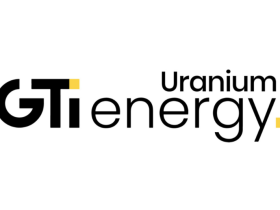In recent weeks, Elon Musk’s Neuralink has captured the public’s attention and imagination with its futuristic vision of connecting the human brain to computers.
As Neuralink, which is registered as a medical research company, continues to make strides, investors are wondering how to get a piece of the action by investing in the neurotechnology venture.
Because it is privately held, Neuralink isn’t accessible to the average person — but that doesn’t mean getting exposure is impossible. Read on to learn how to participate in the growth of this exciting business.
What is Neuralink?
Neuralink is a neurotechnology startup that was founded by Musk in 2016.
It was first reported on in 2017, and two years later, in June 2019, the company held and streamed its public launch event to showcase the technology it is developing: an innovative brain-computer interface (BCI).
Instead of using traditional electrodes, which according to a company whitepaper can be bulky and damaging to brain tissue, Neuralink’s BCI uses “ultra-thin threads” that are implanted into the brain using a robotic device that resembles a sewing machine. Once implanted, the electrodes develop a BCI, stimulating the brain and monitoring activity, and the threads connect to a custom-designed chip that can read data from groups of neurons.
Potential uses of BCI technology include helping paralyzed individuals regain control of their limbs and restoring vision. Musk told his audience during Neuralink’s 2019 launch event that this technology could have a wide range of applications in medicine, such as restoring sensory and motor function in people with spinal cord injuries or neurological disorders. Additionally, an early goal of development is translating neuron signals into computer commands, which would allow humans to control devices like computers and smartphones with their brainwaves.
Musk has claimed that BCI could even facilitate direct communication between humans and machines, although some members of the neuroscientific community are skeptical. Other experts have suggested that Neuralink’s work is not necessarily novel — as Dr. Jason Shepherd, an associate professor of neurobiology at the University of Utah, told Business Insider in 2020, “All the technology that he showed has been already developed in some way or form. Essentially what they’ve done is just package it into a nice little form that then sends data wirelessly.”
How much is Neuralink worth?
Neuralink was reportedly valued at around US$5 billion in June 2023, but as a privately held business, much of its financial information is kept under wraps. That said, US Securities and Exchange Commission (SEC) documents containing information about its funding rounds provide some insight.
The earliest came in 2017, when the company raised US$27 million out of a planned US$100 million in a Series A funding round. In April 2019, SEC filings show the company acquired US$39 million out of a planned US$51 million in a Series B funding round. A limited amount of information has been made available to the public, and the identities of the investors have not been publicly disclosed. However, some news outlets have speculated that funding could have come from a combination of venture capitalists, or from Musk himself and the Neuralink team.
In 2021, Neuralink received what was then its largest amount of money to date, raising US$205 million in a funding round led by tech investment firm Vy Capital. Other participants included Google Ventures, the venture capital arm of Alphabet (NASDAQ:GOOGL); OpenAI CEO Sam Altman; Fred Ehrsam, co-founder of Paradigm and Coinbase (NASDAQ:COIN); and Ken Howery, co-founder of PayPal (NASDAQ:PYPL) and Founders Fund.
In May 2023, as Neuralink faced public backlash over accusations of animal mistreatment, it received clearance from the US Food and Drug Administration to run the first human trial of its brain implant. The company’s latest round of funding, worth US$280 million, came shortly after in August 2023; Reuters reported that it was led by Founders Fund. The filing was amended in November 2023 to reflect an additional US$43 million, bringing the total to US$323 million.
Is Neuralink approved for human trials?
Neuralink opened a patient registry in early 2023 that allowed people who had at least one of a qualifying list of conditions to volunteer for upcoming clinical trials. The first study, dubbed PRIME — Precise Robotically Implanted Brain-Computer Interface — is specifically focused on patients with cervical spinal cord injuries or amyotrophic lateral sclerosis.
Musk said in January 2024 that the brain chip being used for testing is named Telepathy. It is about the size of a coin, and each one is equipped with over 1,000 electrodes 20 times finer than human hair that fan out into the cerebral cortex.
The first operation was performed on January 29 of this year. Musk shared the results on X, formerly known as Twitter, stating that the patient was “recovering well” and that “initial results show promising neuron spike detection.” The next update came during a Spaces event on X on February 19, during which Musk stated that the patient had recovered and was able to move a computer cursor using thought. However, the lack of third-party validation and limited information shared with the public about the trial has raised concerns about transparency among some researchers.
How to invest in Neuralink?
With Neuralink continuing to move forward, how can investors get a piece of this up-and-coming technology?
As mentioned, the firm has yet to go public, so purchasing stock is not an option for many investors. The vast majority of Neuralink’s funding has come from venture capitalists and a handful of billion-dollar companies.
However, there are still ways for investors to potentially profit from Neuralink’s growth before it goes public. For example, investing in publicly traded companies that have invested in Neuralink can provide an indirect stake. Many of Musk’s investors are venture capital firms or private individuals, but some of these firms, such as Google Ventures, are subsidiaries of publicly traded companies. By investing in Alphabet, individuals can indirectly benefit from its investment in Neuralink, as any profit from the investment could potentially flow back to Alphabet.
This indirect approach can be a viable strategy for individuals who want to gain exposure to Neuralink without waiting for the company to go public. Coinbase is another company that offers indirect exposure to Neuralink’s growth; the enterprise is owned by Ehrsam, whose venture capital fund Paradigm has invested in Neuralink.
Those who qualify as accredited investors could also potentially invest in a Neuralink funding round. According to the SEC, an accredited investor must have a net worth of at least US$1 million, not including the value of their primary residence, or an annual income of at least US$200,000 for individuals and US$300,000 for married couples. There must also be a reasonable expectation of the same level of income in the year of filing.
Individuals can also qualify as accredited investors if they are an investment professionals in good standing. In that case, the SEC’s guidelines indicate that they need to hold either a general securities representative license, an investment advisor representative license or a private securities offerings representative license.
Entities like banks, insurance companies or investment firms with total assets of at least US$5 million may also qualify as accredited investors. Certain types of entities, such as private business companies and small business investment companies, may be exempt from the standard asset value requirements for accredited investor status.
It’s also worth noting that Neuralink is just one of several companies currently working on developing BCI technology. One competitor is Synchron, a company with similar ambitions that has received funding from the likes of Jeff Bezos and Bill Gates. On February 1, Synchron acquired a minority stake in German manufacturer Acquandas. This acquisition secures exclusive access to Acquandas’ advanced metal layering technology, which is a critical component for Synchron’s device, the Synchron Switch. Synchron is reportedly ramping up production ahead of a February patient registry launch.
Although the field is nascent, the potential for BCI to impact various industries such as robotics, medicine and biotechnology has generated a growing amount of interest and excitement. Additionally, heightened interest in the artificial intelligence (AI) sector has led to more research and exploration in related fields, and has attracted increased investment in fields benefiting from AI advancements, including robotics and medicine. AI is also being used as a tool to help discover new insights and make moves that might not have been possible without its use.
Finally, one of the simplest ways to gain direct exposure to Neuralink would be through an exchange-traded fund (ETF) that invests in companies related to BCI technology. While there isn’t an ETF that exclusively focuses on BCIs, there are funds that offer exposure to related themes. One example is the iShares Healthcare Innovation ETF (LSE:HEAL,OTC Pink:BLKIF). This fund consists of companies that are developing new and innovative healthcare technologies.
Two other options are the Global X Robotics & Artificial Intelligence Thematic ETF (NASDAQ:BOTZ), which includes companies that are involved in the development of robotics and AI, and the ARK Innovation ETF (ARCA:ARKK), which focuses on disruptive technologies across multiple industries, including healthcare and robotics.
As with any investment decision, it’s important to perform due diligence on available options, including comparing ETFs, to ensure they align with one’s investment goals.
Securities Disclosure: I, Meagen Seatter, hold no direct investment interest in any company mentioned in this article.





